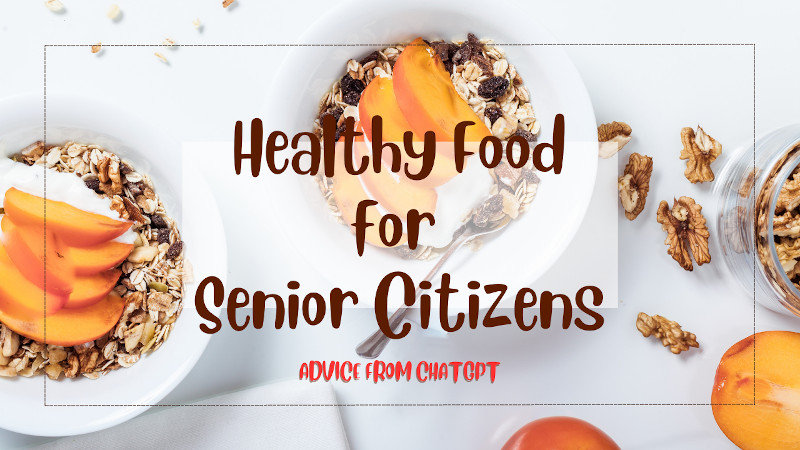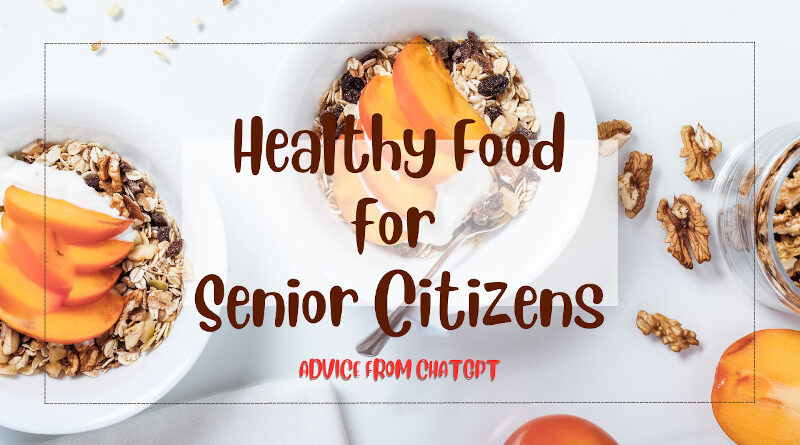What Is the Healthiest Diet for Senior Citizens?

What Is the Healthiest Diet for Senior Citizens?
By following a healthy diet plan and making lifestyle changes, senior citizens can improve their quality of life and reduce the risk of chronic diseases.
As we age, our nutritional requirements and dietary needs change. Therefore, it is essential to follow a healthy diet plan for senior citizens to maintain good health and wellbeing. According to the National Institute on Aging, older adults should focus on consuming nutrient-dense foods and limit their intake of saturated fats, sodium, and added sugars.
Nutrient-dense foods are foods that provide a high amount of essential nutrients while containing relatively few calories. Senior citizens should include a variety of nutrient-dense foods in their diet, such as fruits and vegetables, whole grains, lean protein, and low-fat dairy. Fruits and vegetables are an excellent source of vitamins, minerals, and fiber.
Seniors should aim to eat at least five servings of fruits and vegetables daily. Whole grains are an excellent source of fiber, which can help reduce the risk of constipation and other digestive problems. Examples of whole grains include brown rice, whole wheat bread, and oatmeal.
Protein is essential for maintaining muscle mass and bone health. Seniors should choose lean protein sources such as chicken, turkey, fish, and legumes. Dairy products such as milk, yogurt, and cheese are an excellent source of calcium, which is essential for bone health. Seniors should choose low-fat or fat-free dairy products to limit their intake of saturated fats.
[ You can click here to watch the following video on RMN YouTube Channel and subscribe to the Channel to watch more informative videos. ]
Saturated fats and sodium can increase the risk of heart disease and high blood pressure. Seniors should limit their intake of saturated fats and sodium by choosing lean protein sources such as chicken, turkey, fish, and legumes instead of red meat, using healthy cooking methods such as grilling, broiling, or baking instead of frying, and choosing low-sodium options such as fresh or frozen fruits and vegetables instead of canned or processed foods.
[ Click here to watch Lifestyle videos on RMN YouTube Channel ]
As we age, our sense of thirst may decrease, making it essential for seniors to stay hydrated. Seniors should aim to drink at least eight cups of water daily. They can also increase their water intake by consuming fruits and vegetables with high water content, such as watermelon, cucumber, and lettuce.
Seniors should be mindful of their calorie intake and avoid overeating. They can achieve this by eating smaller, more frequent meals throughout the day to maintain their energy levels and avoid overeating, choosing low-calorie snacks such as fruits, vegetables, and whole-grain crackers to curb their hunger between meals.
Seniors may have difficulty absorbing certain nutrients from food, such as vitamin B12 and vitamin D. Therefore, seniors should consider taking supplements as needed. They should talk to their doctor before taking any supplements to ensure they are safe and effective.
In addition to following a healthy diet, seniors should also stay physically active. Exercise can help maintain muscle mass, improve bone density, and reduce the risk of chronic diseases such as heart disease and diabetes. Seniors should aim for at least 30 minutes of moderate-intensity exercise, such as brisk walking or cycling, most days of the week.
For breakfast, seniors can enjoy oatmeal with berries and chopped nuts, whole-grain toast with avocado and sliced tomato, or Greek yogurt with sliced banana and granola. These options provide nutrient-dense carbohydrates, protein, and healthy fats to start the day off right.
For lunch, grilled chicken salad with mixed greens, tomatoes, and cucumber is a nutrient-dense option that provides lean protein and a variety of vegetables. Seniors can also enjoy a whole-grain wrap with turkey, avocado, and vegetables, or a vegetable soup with whole-grain crackers.
For dinner, seniors can enjoy baked salmon with roasted vegetables, grilled chicken with sweet potato and green beans, or a vegetarian chili with brown rice. These options provide lean protein, healthy carbohydrates, and a variety of vegetables.
In conclusion, a healthy diet for senior citizens should focus on nutrient-dense foods, limit saturated fats and sodium intake, and promote hydration.
Seniors should also be mindful of their calorie intake, consider taking supplements as needed, and stay physically active to maintain good health and wellbeing.
By following a healthy diet plan and making lifestyle changes, senior citizens can improve their quality of life and reduce the risk of chronic diseases.
This article has been produced with the help of ChatGPT (or Generative Pre-trained Transformer). ChatGPT is an artificial intelligence or AI-based online tool called chatbot which generates human-like text responses to prompts or user queries. It was launched by OpenAI in November 2022.






